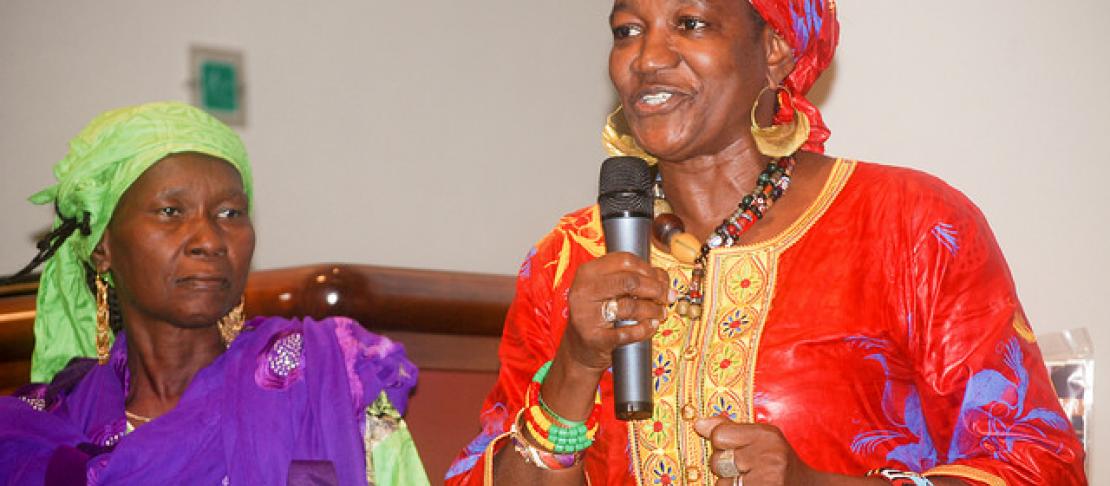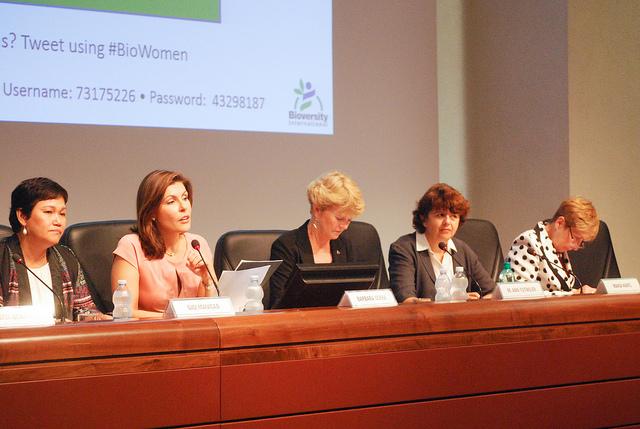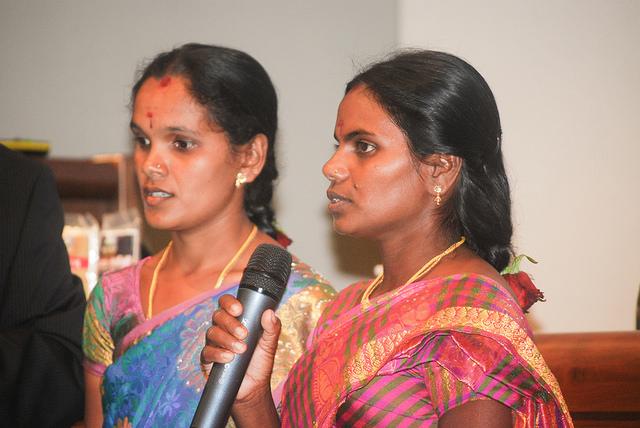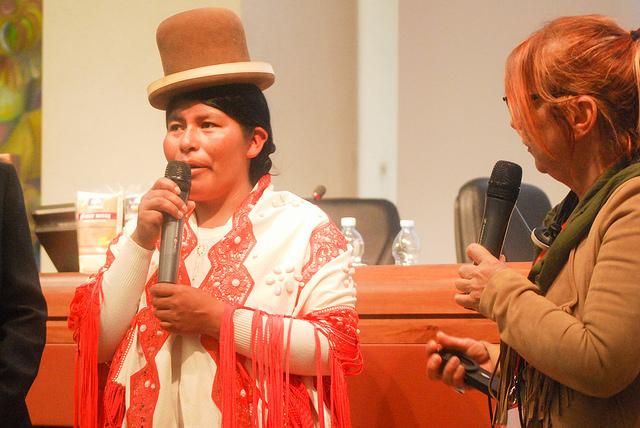Farming needs women’s empowerment. Gains in biodiversity and value chains will follow

An event at the Expo Milano 2015 proved agricultural biodiversity to be both interesting and delicious, as women farmers shared their stories and fresh, traditional meals.
Through the ages, women around the world have selected and stored seeds, made decisions about which foods to collect, grow, buy and cook for the family table, handed down traditional recipes to their daughters and granddaughters and acted as custodian farmers safeguarding and using agricultural biodiversity. Yet women are all too often marginalized when it comes to the food chain – from the farm to the fork.
Ensuring women have equal opportunities to access resources, such as quality seeds and equipment, is fundamental and not just a matter of social equity. According to the United Nations, strengthening women’s capacities would increase agricultural productivity and the diversity of what we eat. It would also go a long way towards meeting the 2015 Sustainable Development Goals (SDGs) on poverty, hunger and sustainable agriculture.
Increasingly the global community is recognizing the importance of agricultural biodiversity for both nutrition purposes and to cope with climate change as well as other risks. For example, some plant varieties can better tolerate frost or droughts, or are more resistant to pests and diseases, than others. Thus, diversifying crops in the fields can enhance the resilience of agricultural systems.
Ensuring that women have equal access to markets to sell these diverse local foods is also imperative for food and nutrition security. Value chains concepts and approaches have been widely used in international development and among CGIAR researchers, with the objective of enhancing the livelihoods of food producers.
‘Agricultural biodiversity, value chains and women’s empowerment’ was the theme of an event recently organized as part of Expo Milano 2015 and the European Year for Development.
Women farmers and international and local development actors gathered to exchange experiences and explain how using agricultural biodiversity can improve the livelihoods of entire families and communities, helping to feed them sustainably and nutritiously.

Al Jazeera journalist Barbara Serra facilitates questions for the panel after their presentations at the event. Photo: P. Gallo (Bioversity International)
Women farmers, from four different countries, told their stories:
From India, Malliga Seerangan and Jayalaitha Eswaran explained how nutritious and resilient millets had disappeared from fields and diets, replaced by rice. Bioversity International and partners have worked with rural women in several project sites to re-introduce and commercialize minor millet varieties: their net income increased by 50%, and millets is now back in school canteens with health benefits for children.

Malliga Seerangan, a custodian farmer speaks about promoting on-farm and off-farm practices of using millets, such as quality seed production and participatory varietal selection. Photo: P. Gallo (Bioversity International)
From Bolivia, Sebastiana Choque explained how the country has led the way in officially recognizing the role of custodian farmers, many of whom are women, as key contributors to the conservation of biodiversity, food and income security.
We also heard how Andean grains, which have a high nutritional value and are resistant to extreme weather events, are now back in the fields and their consumption has increased in areas targeted by the project. How? By introducing neglected but resilient varieties and processing machinery, enhancing women’s knowledge, introducing and improving connections with distribution channels and urban consumers.

Sebastiana Choque, Bolivian custodian farmer sharing her experiences. Photo: P. Gallo (Bioversity International)
From Mali, Aminata Ouattara moved the focus away from food crops, as we heard how an association of herbalists has found its place in city markets, thus ensuring a future for medicinal plants and traditional medicine, again, led by women.
Finally, we came to Italy, where Catuscia Sissa told her story of how women have been instrumental in saving native species, such as solina wheat, in the Majella National Park, Abruzzo.
After hearing the farmers’ stories, the finale of the event was not to miss – when the farmers cooked their traditional dishes for everyone to try, showing that agricultural biodiversity is delicious as well.
A video recording of the event is available here.
Erica Roggio, the author of this blog, is Science Liaison Officer at Bioversity International.
Bioversity International is a partner of the CGIAR Research Program on Climate Change, Agriculture and Food Security (CCAFS).



